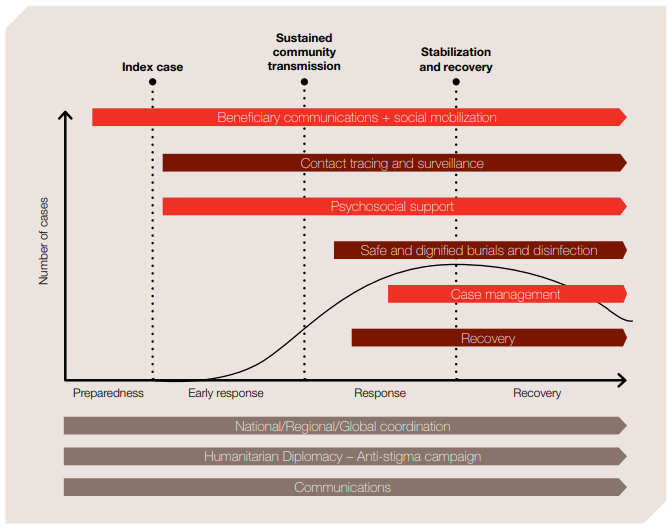This report summarises the strategic intent of future work by International Federation of Red Cross and Red Crescent Society (IFRC) national groups in the case of an Ebola outbreak. It highlights the importance of community engagement as one of the five pillars of IFRC Ebola outbreak response. It argues that each pillar is equally important, with each reliant on each other for full effectiveness:
-
Community engagement - including social mobilisation and two-way communication
-
Psychosocial support
-
Surveillance and contact tracing
-
Case management and treatment
-
Safe and dignified burials and disinfection

Image: Chart showing when the 'five pillars' can be implemeted | IFRC
The report defines community engagement as encompassing “the ways in which we work with communities to implement all intervention activities”. It highlights the value of two-way communication, which allows communities to voice their needs, which ultimately will reduce fear, dispel rumours and raise awareness.
To fulfil this community engagement goal, the IFRC used a number of communication channels, including SMS messaging, radio programming, broadcasting and distribution of IFRC audio visual materials, and door-to-door visits.
Read the full report here for further detail.

This work is licensed under a Creative Commons Attribution 4.0 International License.

Please Sign in (or Register) to view further.